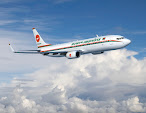 Bangladesh has always offered attractive incentives to the potential investors. Profitable export items also play an important role behind the success of the country’s economy. Initially, the export items of Bangladesh were limited to few items, but recently have expanded to larger number. Tea and jute were the key export items of the country. In recent years, Bangladesh has expanded herself to a wide variety of items, such as ready-made garments, leather products and others. She has also improved herself in the agriculture sector and other non-traditional items.
Bangladesh has always offered attractive incentives to the potential investors. Profitable export items also play an important role behind the success of the country’s economy. Initially, the export items of Bangladesh were limited to few items, but recently have expanded to larger number. Tea and jute were the key export items of the country. In recent years, Bangladesh has expanded herself to a wide variety of items, such as ready-made garments, leather products and others. She has also improved herself in the agriculture sector and other non-traditional items.The population of Bangladesh is around 112 billion and the annual per capita income is approximately US $386.00. Therefore, the textile industry has become a basic need of the country. Bangladesh is well-known in the field of ready-made garments. Initially, the income from the ready-made garment sector was US $7,00 million during the year 1981-82; afterwards, it jumped to US $1,949 million during the year 1995-96. The production of ready-made garments depends on the raw materials used. Woven Fabric is the basic material for the RMG sector. There is a lack of this material in Bangladesh. However, the country has found an alternative of projected fabric. Thus, Bangladesh has improved herself in the ready-made garment sector.
Bangladesh consists of large number of industries, most of which are export-oriented. Among other important export items, are leather and leather product, mainly footwear. Initially, Bangladesh earned US $4 million from exports during the year 1992-93, which improved to US $22.77 million during the year 1996-97. Bangladesh has always stayed at the top for production of leather products as these products are low in price but of good quality.
Along with these artificial products, Bangladesh has also spread its feathers to the agriculture field. She is listed at the top of the food supplying list. In the field of agriculture, the country has improved herself immensely. Among these food items - rice, wheat and other vegetables are most important. Green vegetables are also on this list. Unlike many other countries, Bangladesh is free from natural disasters, such as earthquake, tsunami and others. Therefore, the climate of the country is always favorable for agriculture. Besides, Bangladesh has extended herself into the export of frozen food. The annual turnover of the country was US $321 million during the year 1996-97. The main product in the frozen food sector is fish – raw and dried.
Besides, Bangladesh is a leading country in the export of oil and gas. A large number of companies, with the latest and newest technology, has invested in this country. Therefore, Bangladesh country has become self-dependent in the production of oil and gas. Until recently, the private sector of oil and gas exploration companies has invested a large amount of approximately US $100 million.
Along this, Bangladesh has proved herself in the technology field, mainly communications, telecommunications, power and production of coal.

Comments
Post a Comment